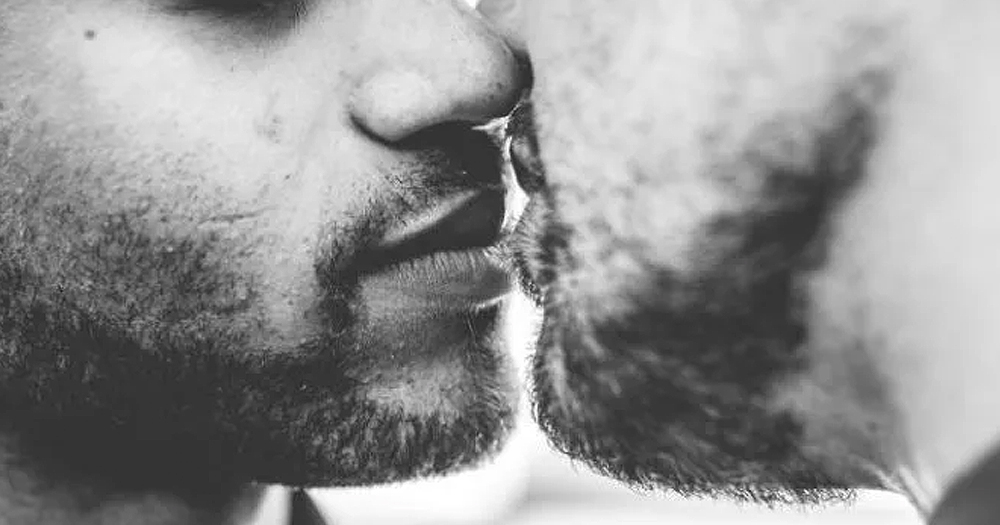While Covid and lockdown have hampered both sex lives and sexual health services, what should we be discussing as the world opens back up?
With the implementation of social distancing to reduce the spread of the virus, HSE guidance advised remaining sexually active with someone within your household and limiting sexual partners living outside your home to one person. Arguably members of the LGBTQ+ community have been the most adversely affected by these measures as our sexual and romantic preferences do not always fit neatly within monogamy or sexual exclusivity to one partner.
Having spoken to several gay men on Grindr, I wanted to get a sense of how our sex lives have changed, or not changed in some cases, over the last year and how we have adapted to the realities of social distancing.
A survey conducted by Grindr at the start of this year found that users were more inclined to look to virtual hook- ups or porn in the absence of hooking up in real life. Having said this, in a study conducted in London between March and June 2020, 76% of men reported that they had been sexually active during lockdown, with two thirds revealing they had sex outside their household.
In Ireland, from my own conversations on the app I learned that many men in their early twenties found themselves having to leave urban areas like Dublin to their parental homes.
Mitchell, 22, moved to rural Donegal in September and spoke of the difficulty in meeting new people or hooking up with one regular partner while living with his parents and without access to a car. What’s more, Mitchell noted that leaving Dublin was related to the breakup of his relationship at the time as his boyfriend remained in the city. In this sense the pandemic separated members of the LGBTQ+ community from each other, removing them from cities where it is easier to connect with people, while creating challenges for those in relationships negotiating where they would spend their time in lockdown.
Stephen, 23, left Dublin in March to his parental home in a county outside of Dublin. Although the arrival of lockdown gave him time to focus on his final year exams, his sexual experiences during the year consisted, unsurprisingly, of masturbation and an increased use of porn, mainly on Twitter and OnlyFans.
Physically apart and deprived of social spaces to meet up in real life it was to be expected that digital spaces would become so important to us. The popularity of OnlyFans, which as of December 2020 reported 85 million users, is an indication of an upsurge of interest in virtual sex that is supported by recent surveys.
However, virtual risk reduction strategies, involving text, images, video, or calling, was not everyone’s preference. Mitchell noted that he hadn’t engaged in virtual sex any more or less during the pandemic than he would have done typically. Although Stephen noted that he was sexting more than usual, he added that he quickly got bored of Grindr in his local county. Both these experiences challenge the survey data that indicates people were more readily engaging in virtual sex and indicates that access to virtual intimacies is not simply predicated on having a smartphone, but on a person’s given location and the opportunities it provides to connect with people of a similar sexual orientation.
In Stephen’s case, when he returned to Dublin in October he began sexting more and hooking up with guys with the intention of preferably establishing a friend with benefits. He emphasised that when messaging men he was conscious of Covid-19 by asking users whether they had symptoms of the virus and generally found people to be cooperative given that they wanted to avoid a two-week stint in self-isolation. In Mitchell’s case, had he been in Dublin from September 2020 to the present he imagines he would have sought to establish a similar friends with benefits relationship.
Having said this, both men pointed out that sex wasn’t a priority for them given the seriousness of the pandemic. Stephen noted that he actually enjoyed the break from the pace of Grindr, corroborating Grindr’s own study published this year that found users were focusing more than ever on their mental and physical health during lockdown.
There is greater need to conduct research in Ireland into the sex lives of MSM to see if comparable statistics of sex outside of households were as common as they were in areas of the UK.
From my own conversations on Grindr, it seems the pandemic brought with it a fair share of boredom and sexual frustration but not always a desire to break lockdown restrictions given the availability of virtual alternatives to sex in real life and the realities of returning home to parts of Ireland with less sexual freedom and a lower quantity of potential partners.
This story was originally featured in GCN Issue 367. Read the full issue here.
© 2021 GCN (Gay Community News). All rights reserved.
Support GCN
GCN is a free, vital resource for Ireland’s LGBTQ+ community since 1988.
GCN is a trading name of National LGBT Federation CLG, a registered charity - Charity Number: 20034580.
GCN relies on the generous support of the community and allies to sustain the crucial work that we do. Producing GCN is costly, and, in an industry which has been hugely impacted by rising costs, we need your support to help sustain and grow this vital resource.
Supporting GCN for as little as €1.99 per month will help us continue our work as Ireland’s free, independent LGBTQ+ media.

comments. Please sign in to comment.